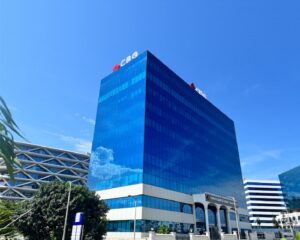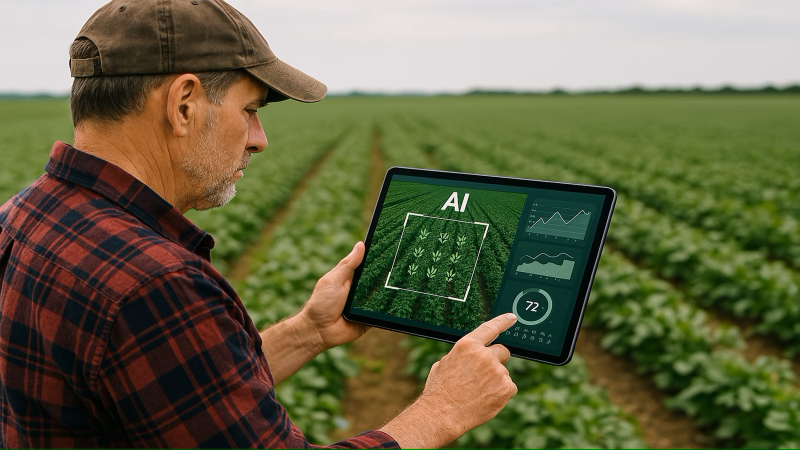The Consolidated Bank Ghana (CBG) is a deposit-taking institution founded in August 2018, when seven struggling local banks were brought together to create one locally owned Ghanaian bank. It is 100% owned by the government of Ghana and regulated by the Bank of Ghana, to provide a valuable service to the mass market and SME sectors of Ghana’s finance industry.
“If you look at the typical state of the Ghanaian economy, you are going to find that a good number of the adult and working-class population are working in the informal sector,” points out Thairu Ndungu, Deputy Managing Director of the Consolidated Bank Ghana. “Most of them are traders under their own names or the small and medium enterprises that do most of the manufacturing and distribution. We have crafted unique financial products for these sectors, giving them the working capital required for their business needs.”
All in the Data
CBG is relatively young, as far as banks are concerned in the Ghanaian banking industry, only in its fifth year. With that “youth” comes challenges. To begin with, most longer-established banks have built up a wealth of data to draw from and use in decision-making, whereas CBG is practically working from scratch.
“The data set you need is much bigger than we have,” Ndungu admits. “As you can imagine, we are only in our fifth year of existence. There are not sufficient data points to make decisions when, for instance, you are lending.”
Modern lending depends heavily on mining data and being able to determine if a customer has a track record and whether they have the ability and intention to pay the money back. Already, CBG is working to build the data support it needs to work well as a business.
“Data is our biggest challenge. That is what we are working on,” Ndungu says. “We have created a Data Science Unit that is going through the process of putting together structured data warehouses and data lakes. That is what we are now using to look at customer behaviour. It means we can go to small businesses and SMEs and say, ‘By looking at your earlier credit we think you qualify for a loan of “X” amount.’”
Digital Natives
To navigate that data-driven world, it is essential to have people who are comfortable handling that data and the technology that is used to process it.
“We are quite lucky in the sense that if you look at the age profile of our workforce, close to 70% of them are between the ages of 25 and 40,” Ndungu points out. “In that sense, we have a very young workforce who are easily trained. It is a good thing to have in the current environment as we are going digital and offering different electronic channels to customers.”
The Millennial generation, having grown up alongside this technology, is becoming an increasingly valuable resource in the modern economy.
“Digital natives are increasingly important and valuable,” Ndungu emphasises. “They can adapt quickly to new technologies.
This is why CBG has schemes in place for staff training, including a Talent Management Centre.
As Ndungu points out, “We look at our high-performing junior managers and junior officers, and put them on fast track training which includes mentoring, classroom-based training and leadership workshops to prepare them for the next stage of their careers as senior managers.”
The bank also has an online training hub with a selection of training programs open to all staff.
“Last year, we managed to get over 200 of our workforce doing at least one of these courses on the hub,” Ndungu says.
A Digital Bank for a Cash-Based Society
But while CBG is making big strides in terms of technology, data gathering and digitalisation, the economy of Ghana as a whole still has some firmly analogue components.
 “For these market traders, the challenge is that Ghana is largely a cash-based society,” Ndungu tells us. “The problem is finding time to deposit the cash they collect without closing or abandoning their stall.”
“For these market traders, the challenge is that Ghana is largely a cash-based society,” Ndungu tells us. “The problem is finding time to deposit the cash they collect without closing or abandoning their stall.”
CBG has responded to this challenge by combining analogue and digital tools, hiring teams of “mobile tellers” who can go where the customers are. Ndungu lays it out for us, “We connect young people to tablets and send them out to collect the money. They put customer details onto the tablet so that they get an SMS indicating how much money has been taken and the mobile teller will then deposit the cash in the bank. It means traders do not have to leave their store unattended or close to deposit cash.”
This is just one of the ways that CBG has been able to offer support to Ghana’s small and medium enterprise sector.
“We have created SME centres where customers can come in for advisory services and be trained in how to digitise their businesses for inventory and sales management,” Ndungu says. “They can get advice on importers and exporters and how to get protected from loss by the use of the different products we have in place.”
But while CBG is making sure it can support all sectors of the market, Ndungu is in no doubt that the future is digital.
“We have a three-year plan that we intend will double the customer base and double the profitability of the bank,” he insists. “The route to get there is the route of technology. We want to move towards digital and away from brick and mortar. We are one of the biggest banks in terms of branch network, and as such we are trying to use technology as much as possible, to offer banking services to our customers in promoting convenience, easy-to-use digital products, and services such as mobile and Internet banking, e-commerce, card services and more.”






